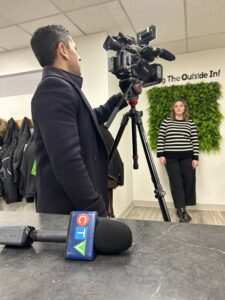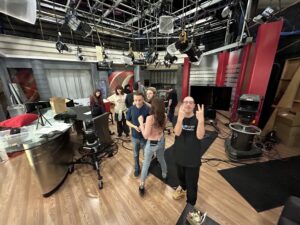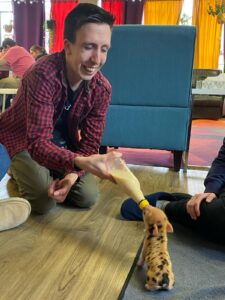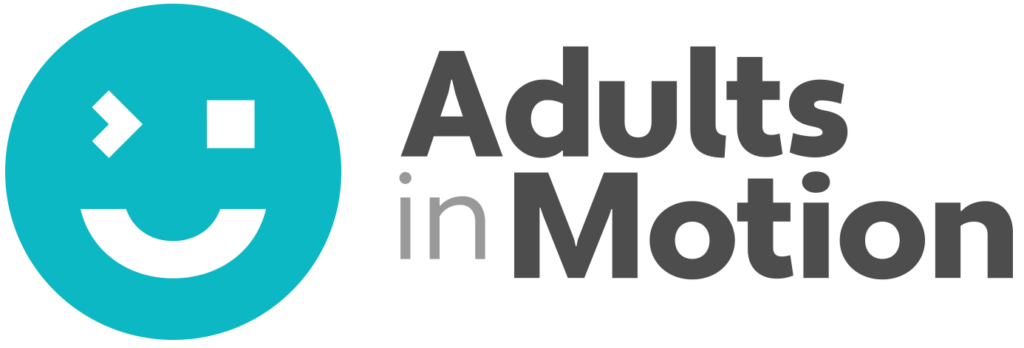Some people do, or feel the need to tip-toe around the word disability as if it is a dirty word by using modified language and alternative phrases. In place of the word ‘disability’ society has often implemented trendy euphemisms or new ways to navigate the use of this word. Far too often I see non-disabled people and large institutions (such as universities) use words such as ‘Dis/Ability’ or ‘(Dis)Ability’ to “soften the blow” of the term and its meaning. But who are we softening the blow for? Who are we trying to make more comfortable? Let’s talk about it.
I have never met an individual with disabilities (myself included) who feels the need to explain and justify the existence of their own abilities. We (the disabled) know that we have abilities outside of our disabilities, it is not something we need to be reminded of or told. We know that our abilities are just as valid as a non-disabled person’s abilities are. We know that we have the same amount of abilities (if not more) as our peers. We know we are just as awesome as the rest of the world! It is the rest of the world that does not always realize this. It is the rest of the world that needs to be reminded that our disabilities do not equate zero abilities. It is the rest of the world that needs to be told that our abilities are just as valid as your abilities.
It is, however, NOT our responsibility (by ‘our’ I am referring to the disabled population) to make the non-disabled more comfortable with our presence. It is not our responsibility to make our existence more digestible for those who do not understand it. It is not our responsibility to tweak our vocabulary to better suit the rest of society’s outdated beliefs and expectations.
It seems that the euphemisms ‘(dis)ability’ and ‘dis/ability’ are not in place to empower people with disabilities, instead, they are in place to make those without disabilities more comfortable with them. It is not the disabled community that needs the reminder that we too have abilities, obviously we know that already. It is the rest of society that needs this reminder.
Although many use these euphemisms with pure intentions, it does not change the fact that these words minimize the ‘dis’ in our disability. The minimization of the word disability is not only harmful to individuals with disabilities, but also to the global understanding of disabilities. Many of us with disabilities have found a portion of our identity in the word ‘disability’. Many of us have found empowerment and acceptance within the label of ‘disability’. Many of us have fought to reclaim this word and to bring power and positivity to the meanings attached to it. We have fought to be seen as disabled, we have fought to be accommodated for the ‘dis’ in our abilities, we have fought to be respected and we have fought to be seen and loved for who we are – and that is disabled. We know the joys and positives that come with having a disability, not just the barriers and obstacles. It is the ‘dis’ in disability that represents these obstacles we face, the perseverance we show, the resilience we have and the power in our differences.
To be clear: we are perfect just the way we are. We do not need to justify our abilities. We do not need our label deconstructed by those who don’t understand what it means to be disabled in order to highlight the obvious – that we have abilities just like everyone else. It must be said, although I wish it didn’t, that having a disability is not a bad thing, it never has been and it never will be. We are not broken people in need of fixing. We do not need to be saved from our disabilities. We are quite happy just the way we are.
One of my favourite disability-related movements is the Nothing About Us Without Us movement. Originally said by two South African disability advocates named Micheal Masthua and William Rowland. This phrase is used to communicate the fact that people with disabilities a) need to have the ability to have full and direct participation in any and all decisions that impact their lives and b) need to be heard and respected when it comes to disability related topics and experiences.
Regardless of the intentions behind the use of such euphemisms, I urge you to rethink your disability vocabulary. In fact, I urge you to wipe your disability vocabulary slate clean of any and all euphemisms, including: special needs, differently-abled, handicap, and physically/mentally challenged. In place of these out of touch words I ask that you use the proper wording and spelling of the term that we have so long been tip-toeing around, and that is disability. We are not fragile, we are not delicate, we do not need to be infantilized. We need to be heard, we need to be seen and we need to be treated with the respect that we have long been deprived of. After all, it would be strange to call a non-disabled person “a non-(dis)abled individual” as we know that they too have their own abilities. Written by Abigail Murphy.




